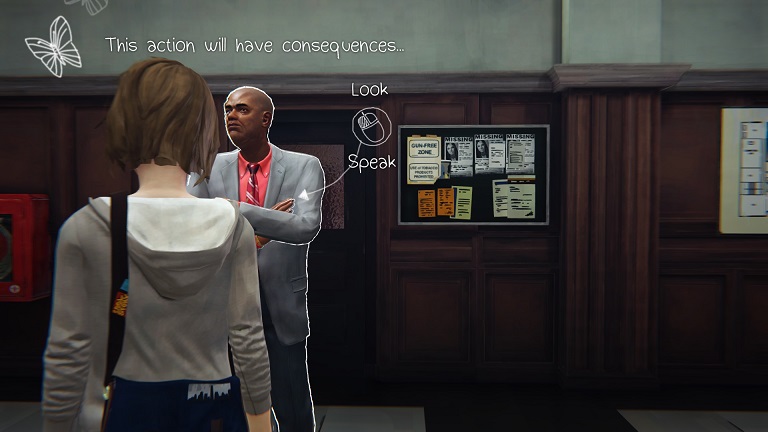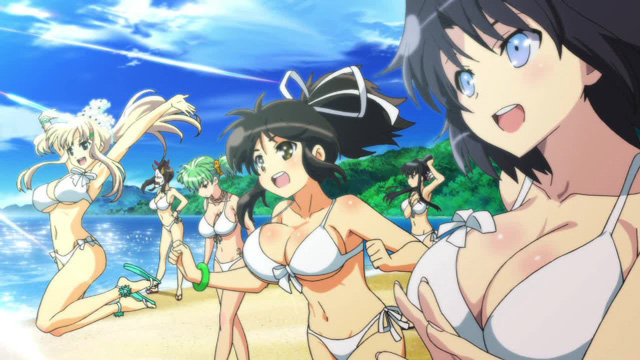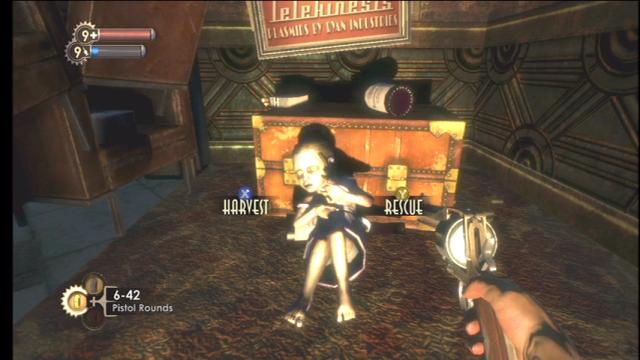How much thought do you give to your moral choices in video games? Do you wish you could take one back? The Western press spills a lot of ink about Japan’s views on sexuality, but ever wondered what Japan thinks about our views on violence? All this and more, so come on in…
Every week on Worth Reading, I present the week’s best games writing, videos, and other interesting bits that didn’t make it onto Kotaku‘s own front page. If you’ve seen anything or written anything that would make sense for a future edition of Worth Reading, let me know!
With that in mind…
Hey, You Should Read These

How we roleplay in a game depends on many factors. At times, the character on the screen is directly influencing the decision making process. Other times, there may be subconscious motivating factors we don’t comprehend until much later. Samantha Blackmon broke down one of these, following a discussion about Life Is Strange. In the game, it’s possible to report a crime to the school’s principal. Blackmon never considered telling the principal, a decision informed by her life experiences. For other people, it wasn’t even a question — of course you tell the school!
“Someone asked how many of the podcasters had chosen to report a student to the school authorities and while some people had and some hadn’t in the end everyone except for me had considered it. And then I thought about why…I specifically remember thinking that being a “snitch” in this game was probably going to end badly and that I could probably fix things better than an ineffectual administrator, but most importantly I remember thinking that the authorities never help you so that would be a waste of time. As we talked about it last night and I began to process I realised that my choice had nothing to do with the game and everything to do with me as a person, and more specifically a person of colour. While non-minority parents get to teach their children to go to the police if ever they need help, minority parents have to teach their children to steer clear of the police whenever possible because the possibility for things to go horribly wrong is extremely high and possibility of actually getting any help is almost non-existent (and in the end not worth the risk).”

Though I’m inclined to roll my eyes at the way some Japanese games portray women — some being the key word! — I’m more interested in knowing why. The cultural gap is what’s interesting but often left out. Claude Smith translated a conversation between Kadokawa Games’ representative director Yasuda Yoshimi and InteractKK representative director Hirabayashi Hisakazu about the differences between eastern and western values on sex and violence. There’s an unusual amount of honesty about the gap between cultures. I’d happily read more of these!
“Yasuda: Last time, we used Mortal Kombat as a sample American game where you could clearly see cruelty on display. The sensitivity of the Japanese is very resistant to that kind of thing, as Hirabashi observed.
Hirabayashi: Yes.
Yasuda: The opposite is true. According to the value systems of America and the Western countries, the representation of women in anime and manga, especially the depiction of girls, meets with strong resistance. People working in Western game companies have often commented on this.
Hirabayashi: That’s right. I’ve experienced the same thing. There’s the old story of how Japan was loose in its regulation of juvenile porn. Those discerning eyes were strict. That said, of course, I condemn juvenile porn as well. However, I think the regulations of foreign countries are too severe. If I remember correctly, in England, saving pics on your computer of your grandchildren swimming in the water could be dangerous. If they got out, say for when you took the computer in for a repair, you could be arrested for possessing juvenile porn, even though you’re their grandfather.”
If You Click It, It Will Play
These Crowdfunding Projects Look Pretty Cool
- Titanic: Honour And Glory hopes to re-create the Titanic experience, including the sinking.
- Cadence wants to help you create music while you play games. Love stuff like that.
- Night Terrors might actually be the end of me. Maybe this shouldn’t get funded.
Tweets That Make You Go “Hmmmmmm”
https://twitter.com/jkottke
I feel bad when I see a team asking for $150k on kickstarter & players asking why it doesn’t cost $10k. When in reality it will cost $600k.
— Daniel Cook (@danctheduck) February 24, 2015
http://twitter.com/zacgormania/status/570658023640866816/photo/1
It’s too bad making games is expensive and takes a long time! There are 4 games that I want to start building right this second.
— Jonathan Blow (@Jonathan_Blow) February 26, 2015
Oh, And This Other Stuff
- Laura Hudson explored how This War of Mine humanizes war.
- Karyl Gilbertson argued that in today’s world, games are never, ever finished.
- Katie Williams wondered if game jams are doing more harm than good to games.
- Leigh Cuen chronicled how YouTube’s Markiplier raised money to fight depression.
- Emily Gera lamented Peter Molyneux’s decision to back off from the press in the future.
- Phill Cameron researched the financial viability of producing DOTA 2 announcer packs.
- David Shimomura analysed the cultural symbolism of the PlayStation controller.
- Taylor Hatmaker dove into a virtual reality game and never wanted to leave.
- Emily Short recommended some adult interactive fiction, if that’s your thing.
See you next week!

Comments
3 responses to “Worth Reading: How Real-Life Choices Influence What We Do In Games”
Hi Patrick!
Awesome to see Worth Reading’s back, really missed it from GB.
Keep up the great work!
Hmmm, regarding the East vs. West differences in violence and sexuality – it’s interesting that whilst popular movies there are often ultra violent e.g. Fist of The North Star, Ninja Scroll or similar anime, or any Takashi Miike film, it hasn’t translated to games as much.
Some of the arguments and examples used in the video about racism and NPCs are total garbage.